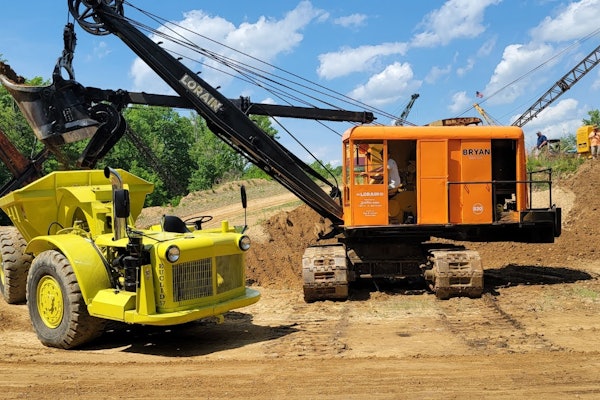I spent the early part of this week writing about our 2014 Contractor of the Year for the May issue of Equipment World. So when the news came that a troubled young soldier opened fire at Fort Hood on Wednesday, killing three people before taking his own life, I couldn’t help but note the contrast between that tragedy and what successful contractors have shared with me about how they work with the young men and women in their charge.
Take Allan Bracken of Johnson City, Tennessee, our COY winner in 2008. Bracken started his asphalt paving business as a hard-headed, hard-charging boss, but he struggled to get the performance he expected out of his crews. Turnover and absenteeism dogged the company until he stumbled upon an old bit of wisdom:
“People don’t care how much you know until they know how much you care.”
Bracken realized that when employees failed to show up for work it was often because they had problems at home. Issues unrelated to work were dragging down his crews. So Bracken started coaching his guys on leadership.
In regular Monday morning meetings Bracken, the supervisors and crews started talking about ways they could manage their lives better, at and outside of work. In the field, Bracken changed the tone from criticism to education and encouragement. The turnover stopped, absenteeism vanished, productivity increased and revenues doubled in just a few short years.
Jim Schier, Houston, Texas, a 2007 COY finalist, told me a story about a young employee of his who got ripped off by a car dealer. When Schier found out, he walked into the dealer’s office and said in no uncertain terms, “We are going to renegotiate this contract for the truck you just sold my guy.” And the dealer did. After 25 years in the business Schier has never had to lay anybody off.
It’s that kind of loyalty and engagement that makes a successful contractor. I’ve seen it dozens of times and so have my co-workers.
In a recent article “A newbie’s guide to surviving your first week in construction”, I wrote that the most important thing you can do is to show up to the job 15 minutes early. The old guys know this is the time you take to look everybody in the eye, make sure they’re fit for work—physically, mentally and emotionally. Ninety-nine percent of the time, everybody will be locked and loaded, ready to go. But in a dangerous, high-stress environment, be it construction or the military, if you overlook that one-percent the results can be deadly.
That, in a nutshell, is a crucial lesson in leadership. You have to be close enough to your people to know when something isn’t right, as do your supervisors and anybody who has anybody else reporting to them. If something isn’t right you have to have the guts, the patience and the wisdom to deal with it.
I don’t presume to know what went wrong at Fort Hood. The shooter was being evaluated by a psychiatrist though he showed no signs of violence, and angry loners can be hard to ferret out. I do know that everyone in the military, families included, has been strained by back-to-back deployments and 12+ years of war. And the government, when faced with a problem, has a bad tendency to throw money and experts at it. A very faceless, bureaucratic solution.
In “Zen and the Art of Motorcycle Maintenance,” author Robert Pirzig writes about the difficulties he faced with his mentally-ill young son Chris. He tried professional counseling for a while and then stopped because, as he says in the book, he felt like the professionals weren’t “kin.” The word kin, he noted, in addition to meaning family, is related to the old Scottish term “ken” and the German root “kennen,” meaning to know, to understand. Professional psychologists, Pirzig wrote, would never know Chris as well as his family, his kin.
The military does a good job of making it your family. Nobody who has ever served forgets the camaraderie. Construction companies, at least the good ones, work this way too. But sometimes people slip through the cracks.
The best you can take away from the tragedy at Fort Hood is to make sure you’re at work 15 minutes early every morning, look everybody in the eyes and ask them how it’s hanging. If they don’t consider you family—kin–you need to work on that. Lives depend on it.
Since 2001, the War on Terror has claimed the lives of 6,617 American service men and women. In that same period, 10,078 construction workers have been killed by accidents on jobsites right here at home.












